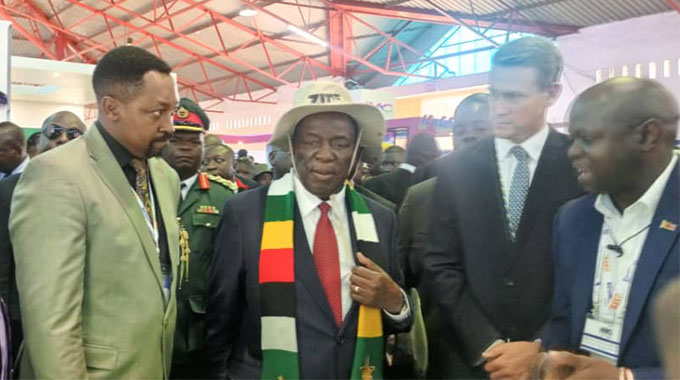Derick stepping out of Majaivana’s shadow
Bruce Ndlovu Showbiz Correspondent
FOR many young artistes, following the success of a hit song is a tough act to master. While a top charting song may bring instant results it can overshadow their careers in the long run, as the songs they release thereafter fail to match the brilliance of the song that gave them their initial claim to fame.
The same goes for artistes that achieve a breakthrough with an album that wows music lovers. As in the case of the hit single, the pressure to follow up your initial success is great although in this case, on a much greater scale. Many have faltered and fallen by the wayside as their follow up albums fail to deliver on the promise of their first release.
The “sophomore” or second album curse has down the years claimed many artistes as they go from music lovers’ darlings to flops, tumbling from a hero to a zero in the space of two releases.
In Zimbabwe there is a new breed of young artistes that are dealing with a different kind of pressure. Unlike other young music industry upstarts, who are under scrutiny to follow up an excellent hit single or album, these artistes are under pressure to replicate the success established by catalogues of classic music left behind by their parents.
This young brigade of artistes led by Peter Moyo and Sulumani Chimbetu is thus faced with the unenviable tasks of not only forging their own identities, but also making sure that the strong fan bases are not starved of the staple diet of hits that their legendary parents left behind.
Also falling under this category of young artistes is Derick Majaivana, whose mission is to follow in the illustrious footsteps of one of Bulawayo’s favourite musical exports, Lovemore Majaivana. On one hand it may seem like Derick holds all the right cards, as he can pull any song from his father’s vast catalogue of music to send any crowd into a frenzy. On the other hand, a constantly high standard is asked of him as he attempts to shrug off the shadow of one of the country’s most famous artistes.
During his heyday Magee, as he was known to his legion of fans, was one of the most complete and prolific musicians in the country. While his lyrical and vocal prowess was unmatched, his stage presence was also not to be sneezed, as his nimble footed dance moves mesmerised crowds around the country. While he skillfully disguised the messages in his music through the use of metaphors and double meaning, he was and is still viewed as an articulate voice chronicling the struggles and experiences of the people of Matabeleland and Bulawayo.
Derick, who released his debut album Bayamemeza in June, however, says he is not daunted by his father’s glittering credentials. While Magee’s rare combination of charisma and musical excellence is a hard juggling act to master, Derick says he is ready to tackle head on.
He says people might think there is pressure on him and others to follow on the success of their parents, as their music left them a good reference point.
“I don’t think there is any pressure. While people might compare us to our fathers I don’t see it as a bad thing because they have to do that. I think their music is more like a guideline that we have to follow,” he said.
The biggest challenge facing Zimbabwe’s unique group of young artistes that have inherited their parents’ music is the direction that their own music should follow. If they do not deviate from what was left for them they bear the risk of being seen as mere mimics who are not able to cut it in the music biz on their own. On the other hand, if they abandon the musical direction that was left for them they risk losing the support of fans who in most cases want a continuation of their favourite artistes’ style.
Derick says that he has maintained the original sound established by his father’s music.
“I chose not to depart from the sound that my father made. My debut album was therefore more of a continuation of the music that he made while he was active,” he said.
During his prime, the older Majaivana was the most loved and supported artiste in Bulawayo, drawing support from both young and old. Derick’s task therefore is to resurrect the love affair between Majaivana and the city’s music fans, a task he says has been complicated by the challenging economic conditions prevailing in the country.
Bulawayo is one of the hardest hit cities by the economic conditions, with many industries closed and jobs lost, a fact that is not lost on Derick who recognises the enormous task at hand as he seeks to restore his father’s lost glory.
“I am aware of the support that my father used to enjoy in Bulawayo but right now I cannot say for sure how my music has been received by the people of Bulawayo because they are not yet familiar with it. It’s also difficult to organise shows because the economic situation is really bad at the moment,” he said.
Although the going was tough he, however, said that he was encouraged by the support he had received from music industry players since the launch of his six-track effort.
“Everything has gone smoothly so far and my music has been played a lot on all radio stations, I really can’t complain at this point in time,” he said.
The music of legends such as Simon Chimbetu, Tongai Moyo and Leonard Dembo is likely to live even longer in the memory of music fans with their sons taking the torch from them after their deaths. Hot on the heels of the release of his debut album, it is now time for Derick to step up to the mettle and emerge from his father’s shadow.








Comments